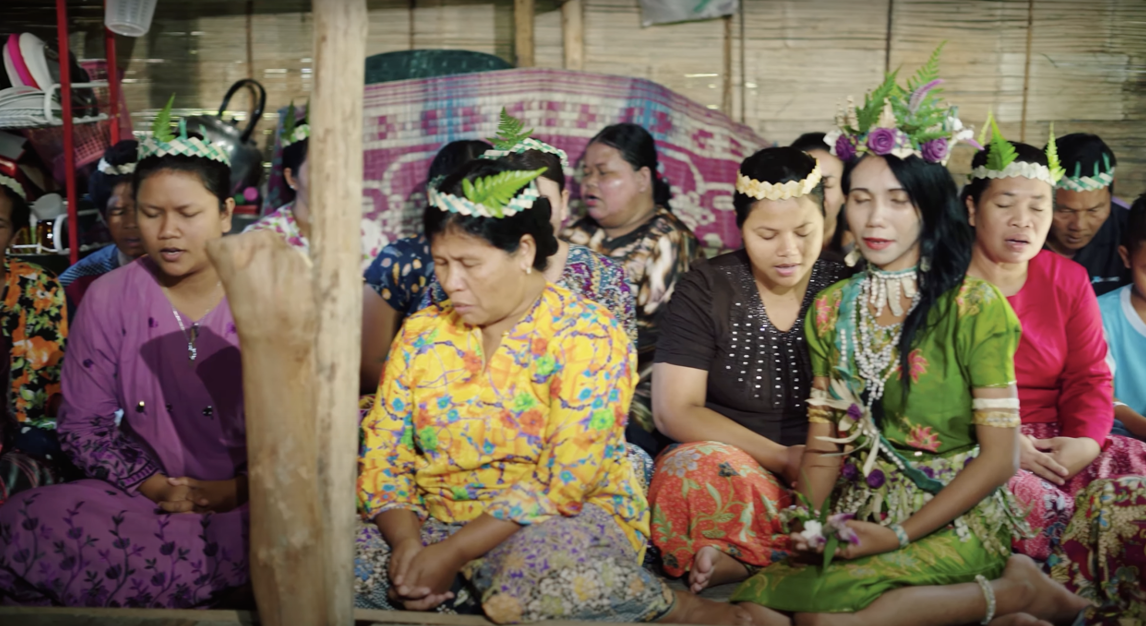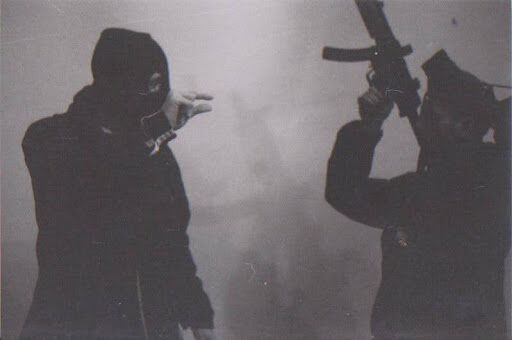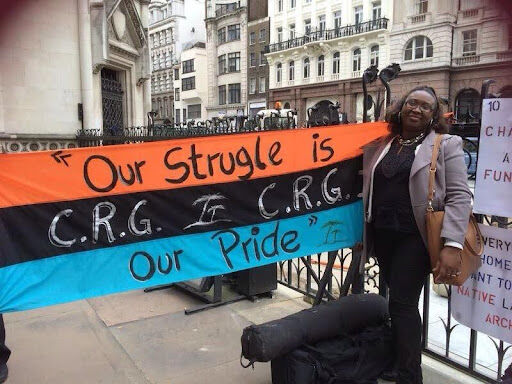The 53rd Session of the Human Rights Council
19th June – 14th July 2023
Item 1: Urgent debate to “discuss the alarming rise in premeditated and public acts of religious hatred as manifested by recurrent desecration of the Holy Quran in some European and other countries”
11th July 2023
By Juliet Wishner / GICJ
Executive Summary
The ongoing deliberation between which to value more, freedom of expression or freedom of religion, was on full blast during the Urgent Debate to “discuss the alarming rise in premeditated and public acts of religious hatred as manifested by recurrent desecration of the Holy Quran in some European and other countries”, held by the HRC during the 32nd meeting of the 53rd session on the 11th of July 2023. This debate was brought up by the request of Pakistan on behalf of the Organization of Islamic Cooperation (OIC) who called for the adoption of the draft Resolution 53/23 on discrimination based on religion considering the recent acts of Quran burnings and other acts of Islamophobia.
The debate opened with the High Commissioner of Human Rights, Mr. Volker Türk, discussing the situation at hand. He noted that this debate is complex, for the right to freedom of speech must be protected alongside freedom of religion. Mr. Türk called for the active combatting of hate speech through following prior UN plans and resolutions that were put in place for situations like these, such as the Rabat Plan and the Istanbul Process.
Following Mr. Türk’s opening remarks, the Special Rapporteur on Freedom and Religion and Beliefs, Ms. Nazlia Ghanea, continued the conversation by reiterating her commitment to protecting religious minorities and combatting hate speech. Like the High Commissioner who spoke before her, Ms. Ghanea encouraged states to follow the existing plans that were agreed upon in previous years.
A variety of member states of the council spoke after, debating these ideas. Delegates representing the OIC reaffirmed their support for this resolution, condemning recent Quran burnings and emphasising the importance of freedom of religion. On the other hand, EU states noted that while protecting religious freedom and fighting religious hatred is extremely important, it ought to not come at the expense of free speech. A number of civil society organisations expressed their opinions surrounding the resolution. There were differing views on how to balance freedom of speech and freedom of religion, with some organisations advocating for the adoption of the resolution, and others fiercely opposing it.
GICJ in three joint oral statements during this debate, condemned the increase of Islamophobia around the world and denounced the complacency of governments that allow hate speech to flourish. GICJ encouraged States to prioritise education and intercultural dialogues to foster trust between diverse communities. Finally, GICJ implored the Council to put the 2019 UN Strategy and Plan of Action on hate speech into effect.
Ultimately, the vote on the draft Resolution represented the lack of consensus around this topic. Resolution 52/23 on countering religious hatred constituting incitement to discrimination, hostility, or violence was adopted by 28 votes in favour, with 7 States abstaining and 12 voting against it.
Background
There has been a worldwide increase in hate crimes and acts of Islamophobia, specifically in Europe. This culminated with an Iraqi immigrant burning of the Quran book outside of a Stockholm Mosque on the 28th of June 2023. This day was also Eid al-Adha, a Muslim holy day. The Swedish authorities permitted this incident, citing it as freedom of speech. This event, along with other acts of religious hatred, prompted this debate.
Prior to these horrific acts of Islamophobia, the UN had built frameworks to address religious intolerance. The United Nations Commission on Human Rights adopted Resolution 1986/20, creating a “Special Rapporteur on Religious Intolerance”. In March 2011, HRC Resolution 16/18 was adopted, focusing on “combating intolerance, negative stereotyping and stigmatisation of, and discrimination, incitement to violence, and violence against persons based on religious beliefs”. It created the Istanbul Process, which is a series of inter-governmental meetings to promote the implementation of this resolution and create a diverse, inclusive forum to discuss how to best battle intolerance and hatred.
The Rabat Plan of Action was adopted on the 5th of October 2012, in which it was concluded that hate speech can be restricted under articles 18 and 19 of the ICCPR on a variety of grounds, including respecting the rights of others and national security, although noting that under article 20, limiting free speech must be the exception, not the rule. It concluded that there is a high threshold for defining restrictions on freedom of expression, but that it is possible. There is a six-part threshold test to determine if a speech calls for the restriction of expression: context (1), status of the speaker (2), the intent of speech (3), the content (4), the extent of dissemination (5), and the likelihood of harm (6).
Ms. Nazlia Ghanea assumed the mandate as Special Rapporteur on freedom of religion or belief on the 1st of August 2022. On the 6th of March 2023, a variety of UN experts including the Special Rapporteur on freedom of religion and belief called in a joint statement for “greater efforts to promote freedom of religion or belief foster intercultural dialogue and understanding, protect religious minorities and combat hate speech while upholding freedom of opinion and expression”. They encouraged states to address acts of religious intolerance by following international standards like the Rabat Plan of Action.
Report of the High Commissioner of Human Rights on Countering Religious Hatred
The High Commissioner of Human Rights, Mr. Volker Türk, began the conversation around the proposed resolution. He opened by noting the importance of symbols to humans, from the mundane to the religious--the destruction of such symbols can aggravate tensions already lying within society. Strongly condemning the burning of the Quran and other inflammatory actions, the High Commissioner continued by stating that all people have equal rights to believe what they choose—this is a fundamental value of the Universal Declaration of Human Rights (UDHR).
Overall, the High Commissioner stressed the importance of committing to advancing greater tolerance and respect in order to progress in all aspects of society. There were three main points that Mr. Türk wanted the other council members to take away. The first was that irrespective of the law or a person’s belief-- or their lack of belief-- people need to act in a respectful manner to others. It is only through mutual respect that society can have the conversations that are necessary to progress. He noted a variety of discriminations, including Islamophobia, antisemitism, and actions targeting Christians and other minority groups, which are all manifestations of disrespect. Political and religious leaders have a particular responsibility to speak out against violent actions and make clear that violence is never justified. The High Commissioner referenced Article 20 of the ICCPR, which demands that states must act to “prohibit any advocacy of national, racial, or religious hatred that constitutes incitement to discrimination, hostility, or violence”, including some instances of freedom of expression. However, any limitations of free speech must remain an exception, especially since laws limiting speech are often abused by those in power. Recalling his work on the 2011 series of workshops to better explore Article 20 that led to the Rabat Plan of action to limit free speech in incitement of violence, the High Commissioner encouraged more conversations to be had to continue fighting religious hatred. While he noted that the application of Article 20 is a matter of national lawmakers and courts, the High Commissioner stressed they must do so in a manner that is consistent with the guidelines international law provides.
The second point was that the advocacy of hatred that constitutes incitement to violence or discrimination should be prohibited in every state. The use of bigoted language towards a person or group for any factor related to their identity is used to dehumanise or minimise a person must be banned, whether it be based on religion, gender identity, sexual preference, and more. All forms of hate speech are on the rise, and it must be combatted for the sake of social cohesion. For the final point, the High Commissioner stated that hate speech needs to be actively counteracted through dialogue, education, engagement, and other public policy tools in all societies. The United Nations’ strategy and plan of action on hate speech ought to be implemented on the national level, like the Rabat Action Plan the Istanbul process. Mr. Türk concluded by urging the Council to proceed with respect for each other and for the gravity of the topic at hand.
Report of the Special Rapporteur on Freedom and Religion
The Special Rapporteur on Freedom and Religion and Beliefs, Ms. Nazlia Ghanea, followed the High Commissioner's impassioned speech. She spoke on behalf of the coordinating committee of the special procedures and for her own mandate, both of which strongly condemn all forms of discrimination on religious or any identity grounds. The work of the Special Procedures aims to protect people from discrimination through country visits, identifying root causes of bigotry, and amendments to laws in policies that may encourage incitement. The Special Rapporteur noted that less than six months ago, she and her colleagues called for greater efforts to protect religious minorities and promote intercultural dialogue while supporting freedom of speech--this goal should be reaffirmed by all States. The Special Rapporteur noted how public acts of religious intolerance are at an increase, which include the recent burnings of the Quran, and that they represent steps backwards for society. Article 18.2 of the International Covenant on Civil and Political Rights (ICCPR) states that no one, individual or group, should be subject to coercion to or against a religion, whether attacked directly or indirectly. The weaponization of religion and instigation of acts that manifest intolerance were strongly condemned. While noting that blasphemy laws are prohibited under the ICCPR, the Special Rapporteur encouraged states and international actors to condemn and sanction these actions and called for the international response to these abhorrent actions to be based in the international human rights law framework.
The Special Rapporteur emphasised that the HRC confirms that prohibitions against freedom of speech are incompatible with international human rights law except when they constitute article 20 of the ICCPR—if they are inciting hate, violence, and harm. She welcomed the condemnation of States of acts of hate speech, and called for States to effectively sanction and punish those who incite religious hatred, for this is in line with Article 5e of HRC 16/18 Action Points. Further, this Action Plan encourages States to create collaborative networks to build mutual understanding,build integration, and find potential tension points between communities. However, she noted that if a State is limiting freedom of speech, they must respect the three steps of the ICCPR: the restrictions must be legal, necessary, and proportionate. The Special Rapporteur concluded her remarks by restating the responsibility of states to practise due diligence when dealing with intolerance of all forms and urged governments on all continents to permit visits from Special Procedures to advise on these matters.
General Debate on the Draft Resolution
The debate opened with the delegate of Saudi Arabia speaking on behalf of Arab countries. Opening by thanking the President of the HRC for their effort to promote this work, the delegation strongly condemned the increasing actions of extremists, including the recent Quran burning in Sweden. The delegate noted that “freedom of expression is an ethical value that should spread peaceful coexistence rather than causing a clash of civilizations”. The delegation looked forward to the passing of the Resolution.
The delegate of Pakistan spoke on behalf of the OIC, strongly condemning the intolerant actions that have occurred, stating that the “commission of these wilful and public desecrations of a book sacred to billions of people is not an exercise of the right to free speech. They are an affront to our common humanity and dignity”. The repeated, deliberate desecration of holy texts constitutes incitement, and demonstrated the abdication of responsibility to prevent such hateful actions from occurring. The delegation called this moment in time an inflection point: silence and complacency must not be tolerated. Noting that under international human rights law, States are bound to protect citizens from such acts of impunity, the delegation urged member states to sign on to the resolution.
The delegate of the Ivory Coast, speaking on behalf of the group of African States, warned of the dangers of allowing hate speech to be tolerated. The tragedies of the 1990s, including many in Africa, began with dehumanisation, not massive aggressions--stereotypes and hate crimes that may initially seem harmless can lead to larger atrocities. The delegate highlighted the increased risk of incitement that technology holds, and how public desecration of sacred texts can have serious repercussions in the digital age. Further, the delegation referenced the Vienna Declaration and Programme of Action (VDPA) which in addition to urging governments to counter religious hatred also stressed the importance of religion to billions of lives. In conclusion, the delegate urged states to adopt comprehensive approaches to counter the increase of religious hatred.
The Spanish delegate spoke on behalf of the EU. The delegate reiterated that the right to freedom of religion is a priority of the EU, and that in accordance with Article 2 of the ICCPR, EU states prohibit advocacy of national or religious hatred that is incitement of hostility and violence. The delegate supported the frameworks that are already in place to combat hate speech, like the Istanbul Process and Rabat Plan. The delegate warned that limitations of freedom of speech must remain an exception and can only be determined on a case-by-case basis.
There were a variety of opinions about the resolution from civil society organisations. All of the organisations shared outrage and condemnation of acts of religious hatred. A number of NGOs voiced fears about blasphemy laws and how they can ultimately harm the groups they were intended to protect. Additionally, organisations against the Resolution cited previous frameworks that were developed to counter hate speech, including Resolution 16/18. On the other hand, many NGOs supported the passing of the resolution, noting that what some may view as free speech is an attack on others. Actions such as the burning of holy texts can lead to crimes against humanity.
GICJ delivered three joint oral statements during the debate. Firstly, in partnership with Association Ma’onah for Human Rights and Immigration, GICJ called out political leaders who are fueling and allowing hate to persist in many countries. The real problem lies in the complacency of leaders who encourage hatred, not in individual expressions of bigotry. Additionally, we focused on discrimination against Muslims in member states such as France and China. GICJ urged States to promote intercultural dialogue and education to create an environment that can effectively combat hate. In association with the Union of Arab Jurists, GICJ denounced the worldwide increase of Islamophobia and the complacency of some governments to use the freedom of expression as an excuse to permit such hateful and inflammatory actions. GICJ noted that freedom of expression must not be used to violate other human rights. Finally, GICJ delivered a joint statement with EAFORD. We encouraged the development of future-focused texts that do not permit freedom of expression to be used in defence of deliberate and inflammatory actions against religions. We urged the Council to enforce the 2019 UN Strategy and Plan of Action on hate speech.
Finally, resolution 53/23 on countering religious hatred constituting incitement to discrimination, hostility, or violence, was adopted by voting, with 28 votes in favour, 12 votes against it, and 7 abstentions.
Position of Geneva International Centre for Justice (GICJ)
GICJ supports the adoption of Resolution 53/23, and hopes that it will encourage intercultural dialogue on combating all forms of religious hatred, which directly threaten the human rights of billions of people. We encourage the promotion of free speech but note that it must be done in a way that is truthful, respectful, and does not incite hatred and bigotry. We urge States to take responsibility and necessary action to combat religious and cultural hatred and promote greater understanding of the need to respect those of different religions and backgrounds, for it is essential in creating a just and equitable society. As the world continues to become more interconnected, these conversations are ever more important and necessary.
HumanRights, HRC53, HumanRightsCouncil, UrgentDebate, UnitedNations, QuranBurning, Islamophobia, FreedomofSpeech, FreedomofReligion, Geneva, GenevaInternationalCentreforJustice, Geneva4justice, GICJ







